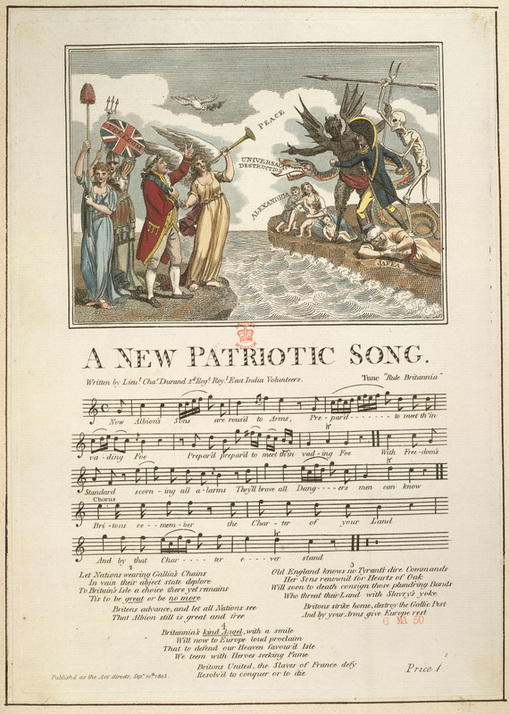
Broadside from 1803 The Treaty of Amiens has collapsed and Britain is once again at war with Napoleonic France.
Napoleon never succeeds in his ambition to invade England. Over the next twelve years, as he marches ever further eastwards, finally invading Russia, British forces defeat him at sea and begin to drive his army back from the occupied Iberian Peninsula. In 1812 he is forced to retreat from Russia with the loss of almost five hundred thousand men. In 1814 Wellington's army enters France, Napoleon abdicates and is exiled to Elba. The brief peace is shattered by his escape less than a year later. The French army rallies to him and he returns to Paris in triumph on 20 March 1815 to reign for a final ‘hundred days’. Allied and French forces clash for the last time at Waterloo on 18 June 1815 when Napoleon is finally defeated.
Unlike the other combatants in this long war, Britain was spared the havoc wrought by an invading army and did not suffer under an army of occupation. The war happened off-stage and far away, with no news reaching home apart from that provided in official dispatches published in the Gazette and what little was contained in intermittent private letters.
But the war had to be paid for. The unpopular income tax, which was introduced for the first time in 1798 and abolished in 1802 after conclusion of the Peace of Amiens was reintroduced in 1803 as a ‘contribution of the profits arising from property, professions, trades and offices’. Trade was depressed by Napoleon’s continental blockade, leading to increased unemployment and rising food prices.
And then there was the human cost, bitterly felt by families whose menfolk were fighting abroad but otherwise accepted as the price of victory.





